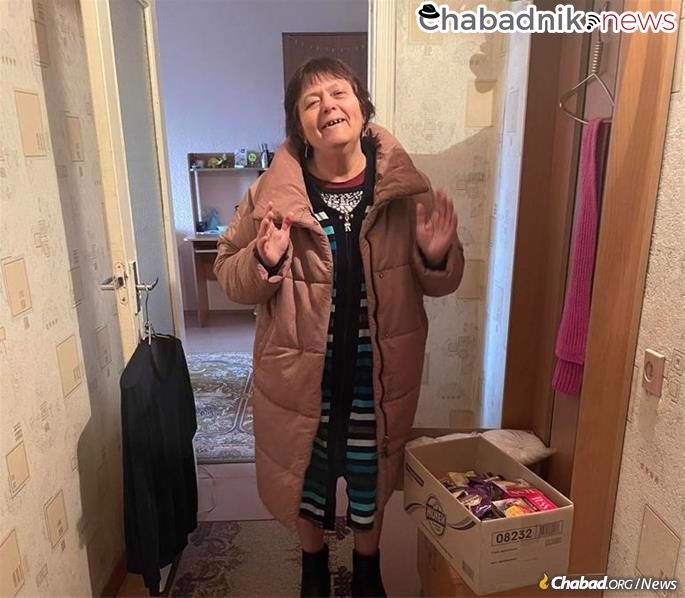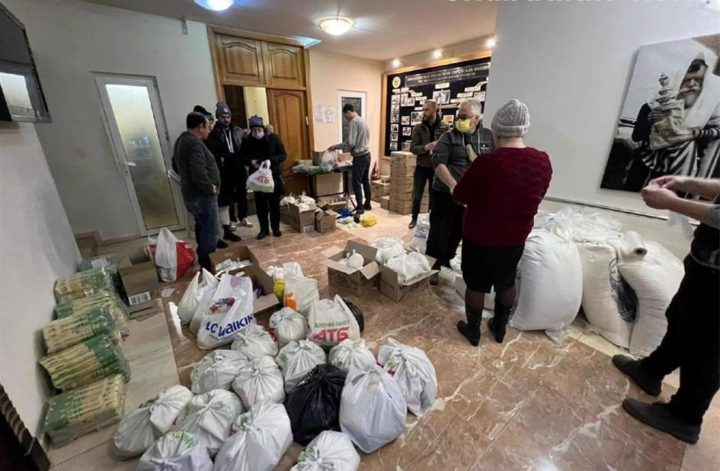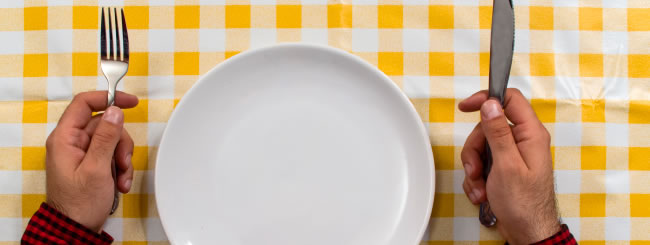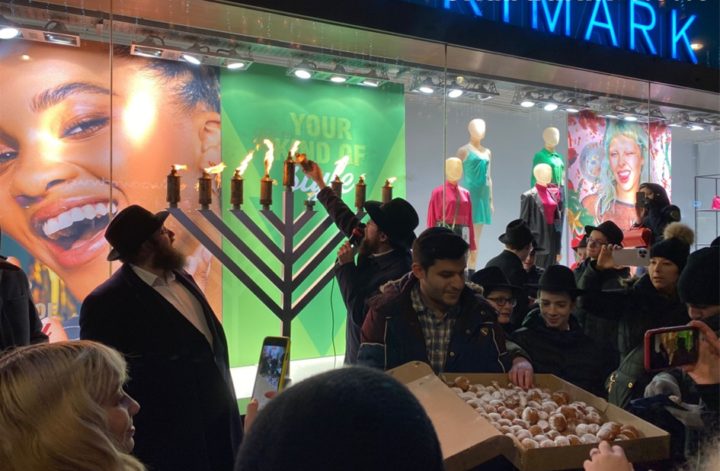City’s rabbi directs distribution of thousands of food packages from afar
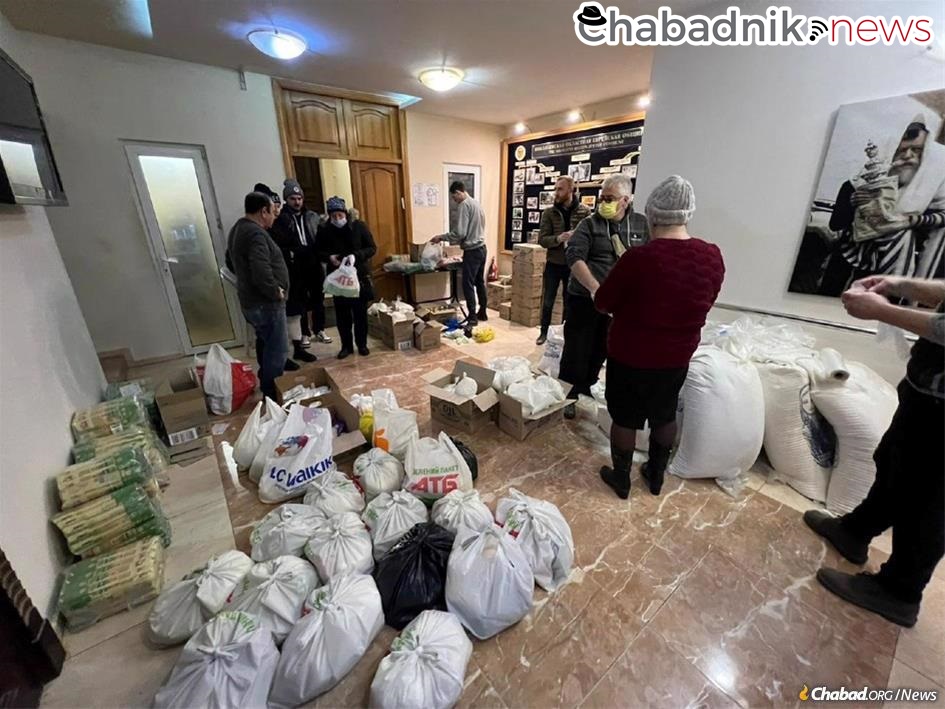
As Russian rockets and shells continue to batter the Ukrainian city of Nikolayev (Mykolayiv), on-the-ground sources report that the situation is getting worse by the day.
“There is no longer food on the shelves and no medicine in the pharmacies,” says Rabbi Shalom Gottlieb, the city’s rabbi since 1996 and director of Chabad-Lubavitch of Nikolayev, who is orchestrating relief efforts from Israel. “We have a large and devoted staff who are trying their best to help everyone in every way they can.”
First and foremost, they are purchasing large quantities of food and other staples, which they are giving to those in need. Thousands of food packages have been distributed, and the need continues to grow with each passing day.
When possible, distribution takes place at the city’s synagogue. But people are rarely venturing out for fear of shelling—on Sunday nine people were killed by rocket fire—so the staff have been delivering essentials of potatoes, rice, cabbage and onions directly to private homes and shelters.
Heat is no longer working in the city of nearly half-a-million residents. And with the weather expected to dip below freezing once again this week, the rabbi says they’ve been desperately delivering wooden debris, branches and crates to people’s homes, so that they will have some warmth.
At the same time, Chabad of Nikolayev has been dispatching busloads of refugees towards the Moldovan border and beyond. This task becomes more and more pressing as the fighting gets closer to Nikolayev and the prospect of attacks akin to what the cities of Kharkov, Kiev and Mariupol are experiencing looms.
The rabbi says that on Monday, aside from a full bus, they will be sending one ailing refugee to the border in an ambulance and have rented a private vehicle for a family with an autistic child who is unable to travel by bus.
Thus far, he has evacuated 550 members of the Jewish community from the city but estimates that many thousands remain.
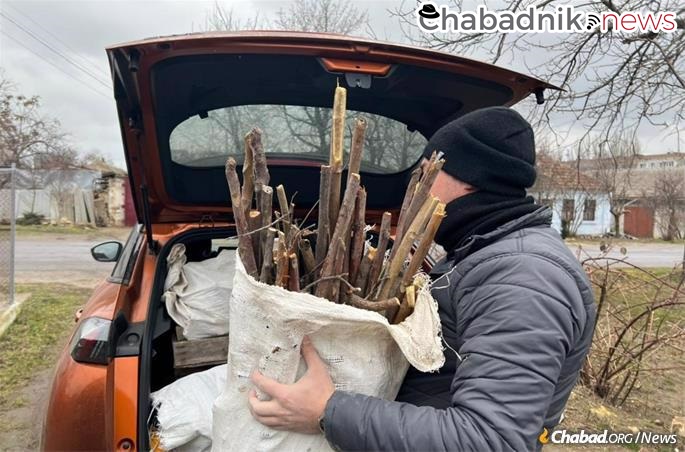
Some have not left because they or a loved one is elderly or infirm and not strong enough to make the trip; others don’t want to leave behind a male family member who is between 18-60 and legally not allowed to leave.
“We are supporting everyone in their situation,” says the rabbi. “If they can leave, we will leave no stone unturned to get them out. But if they are staying, we are there for them all the way, helping them to live in the city.”
The rabbi reports that the requests for help have been consistent since the invasion and have only become more frequent and more urgent as the violence intensifies and people’s supplies run low.
Strategically located between Russian-controlled Crimea and the port city of Odessa, Nikolayev was the goal of a broad offensive by Russia—one that has been so far repelled by the Ukrainians.
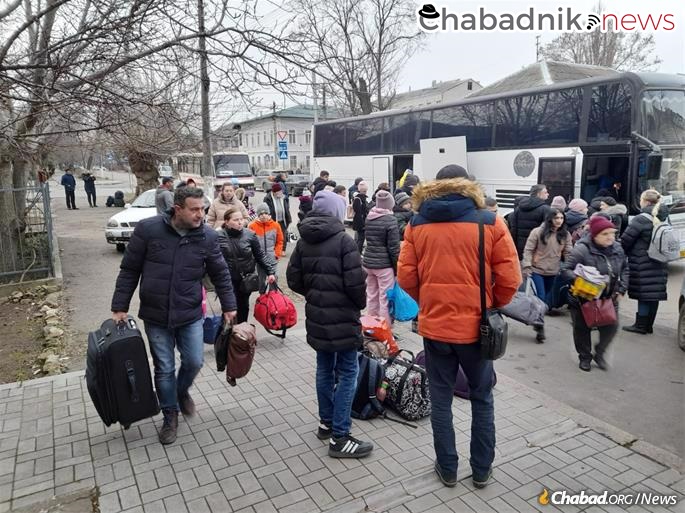
Nikolayev has a long and rich Jewish history. The Rebbe, Rabbi Menachem M. Schneerson, of righteous memory, who was born there in 1902 and was the grandson of Nikolayev’s chief rabbi, Rabbi Meir Shlomo Yanovsky—author of the scholarly work Kav Naki—and his family’s roots in the city stretching back to the 1850s. The Rebbe’s early years were spent in Nikolayev, where he and his family survived the deadly pogrom of 1905.
In February of 2016 the city renamed central Karl Liebknecht street after the Rebbe, and in 2019 two Ukrainian historians co-authored the book Our Fellow Countryman Rebbe Menachem Mendel Schneerson: The History of the Lavut-Yanovsky-Schneerson Families in Mykolaiv, a study that was geared at a general audience and was published by the State Archive of the Mykolaiv Region. A recent war-time video issued by the municipality also highlighted Nikolayev’s significance as the birthplace of the Rebbe.
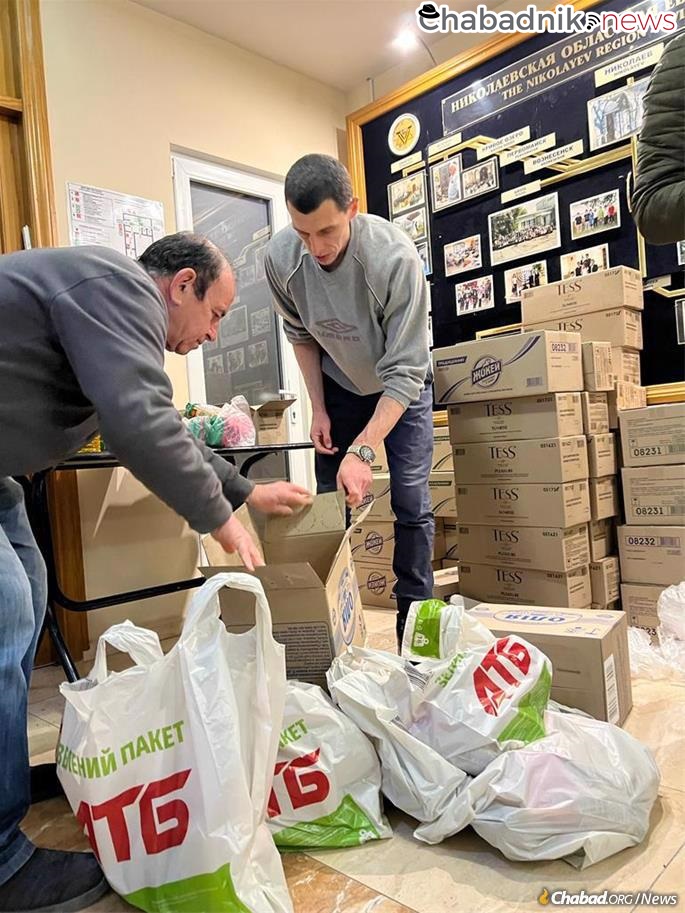
This year, the city had planned major celebrations to commemorate 120 years since the Rebbe’s birth, but festivities have been set aside as the city battles for its continued existence.
The Ukraine Jewish Relief Fund has been established to help provide assistance to the Jewish communities in Ukraine impacted by the war.
Click here for a prayer you can say and a list of good deeds you can do in the merit of the protection of all those in harm’s way.
